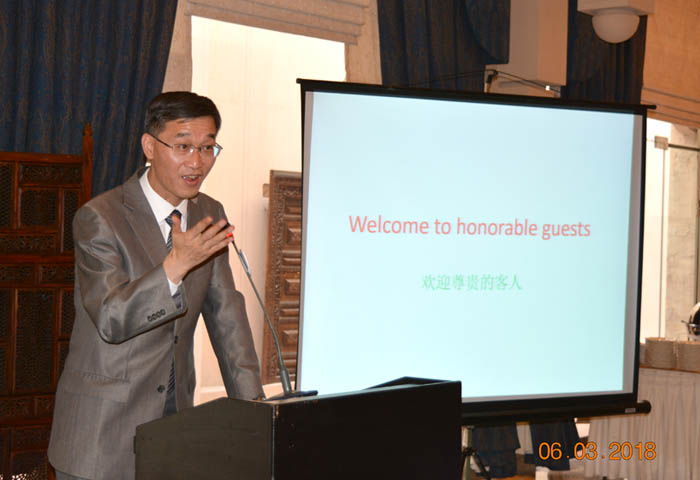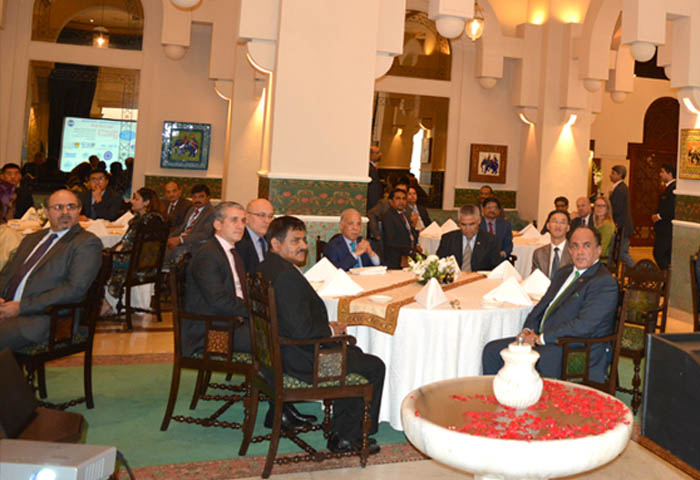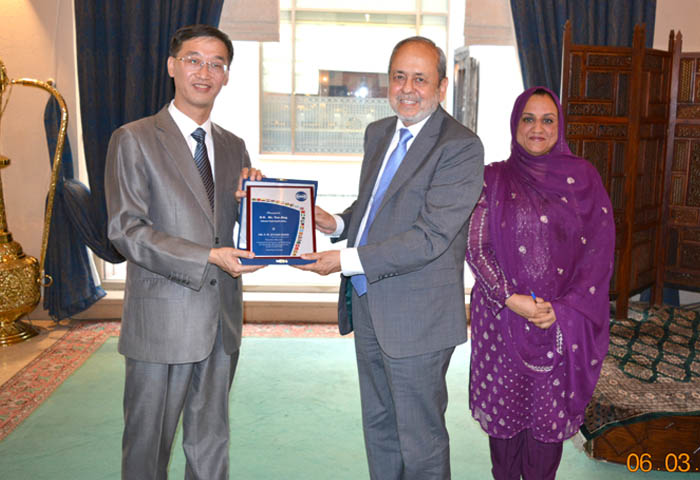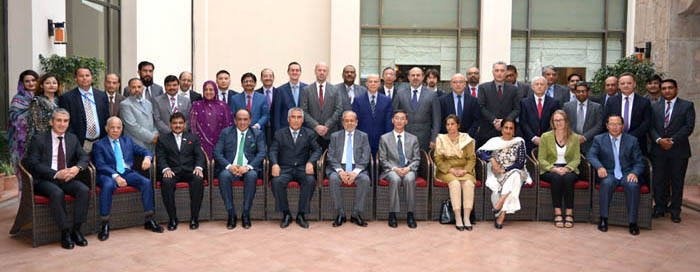Islamabad, March 6, 2018: The Commission on Science and Technology for Sustainable Development in the South (COMSATS) organized a welcome reception in the honor of H. E. Mr. Yao Jing, Ambassador of People’s Republic of China to Pakistan. Mr. Jing took charge in late 2017. A number of Ambassadors and foreign missions of Islamabad attended the ceremony to welcome the new colleague. These belonged to China, Turkey, Bosnia and Herzegovina, Turkmenistan, Azerbaijan, Uzbekistan, Sri Lanka, Egypt, Syria, Tunisia, Morocco, Yemen, Poland, Kyrgyzstan, Portugal. Deputy Head of Missions of Belarus, Sudan, Russia, Norway, Kazakhstan, Romania, Hungary, Ukraine also attended the meeting.
 |
 |
The Executive Director COMSATS, Dr. S. M. Junaid Zaidi, noted to the Ambassador the excellent working relations between China and COMSATS, which include a regular financial contribution, and participation in COMSATS programmes including COMSATS International Thematic Research Groups. China’s famous International Centre for Climate and Environment Sciences is an active part of COMSATS Network and offers a number of capacity building and scholarship opportunities to the scholars of the developing world.
Noting the phenomenal growth the country has undergone during the last four decades, Dr. Zaidi considered China a relatable example of growth and development in present times for the South. Dr. Zaidi sought enhanced involvement of China in COMSATS’ programmes through the Ambassador’s office for the development of COMSATS member states. He highlighted the objectives and mission of COMSATS. He mentioned the unique bond, COMSATS shares with China, which is based on mutual respect and shared idea of a better South and a more equitable world. Appreciating the country’s One Belt One Road project, he stated that it is a prominent example of how growth can be mutual among many countries. He hoped for more member states of COMSATS on the Belt to be able to benefit from the project and pledged COMSATS’ due role in making it possible in line with the organization’s mandate of S&T-led socio-economic development.
 |
 |
The Chinese Ambassador was thankful for the warm welcome he received from COMSATS fraternity. He noted with pleasure China’s successful foreign policies and diplomatic engagements that have placed China in a leadership position in the region. He appreciated COMSATS’ role for S&T cooperation in the region and hoped that collaboration between the two would result in sustainable outcomes for many developing countries.







